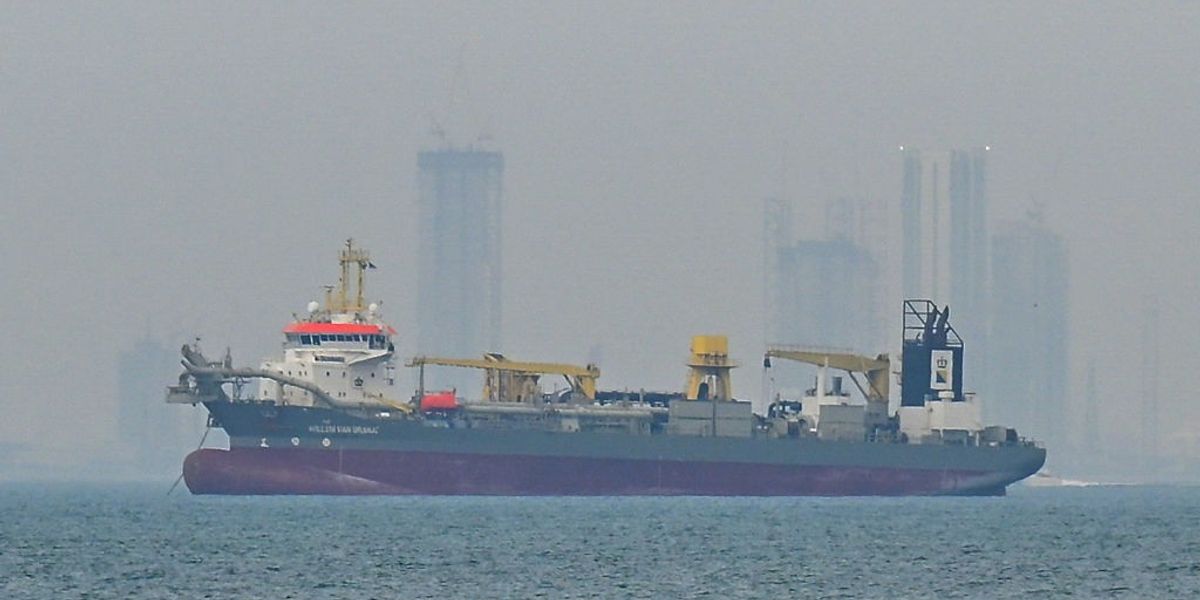GUNSHOTS reportedly rang out as a huge fire erupted at Iran’s notorious Evin prison in the nation’s capital tonight.
Dramatic footage showed smoke billowing from the “hellhole” jail that houses political prisoners in Tehran on Saturday.
10

10

10

10
It comes amid continuing unrest in the country after Mahsa Amini was allegedly beaten to death by Iran’s morality police.
The 22-year-old’s arrest for not covering her hair with a hijab and subsequent death sparked the most intense protests in decades.
An ominous alarm sounded in the city of Tehran as an “armed conflict” broke out inside the prison on Saturday, according to the US-based Centre for Human Rights in Iran.
Staggered gunshots were reportedly heard after a fight broke out in one of Evin’s wards as inmates reportedly clashed with guards.


State-run news agency IRNA said eight people were injured in the fire but there were no fatalities.
An official told the outlet “rioters” were separated from other prisoners while the rest returned to their cells.
They reported that detainees had “set alight the warehouse of prisoners’ clothes” sparking the mammoth inferno.
The Daily Mail reported that inmates were seen on top of one of the jail’s buildings chanting “Death to the dictator” – a rallying cry used throughout the recent protests.
The situation is now said to be “under thorough control” as firefighters extinguished the blaze.
Riot police were seen heading inside while security forces were deployed locally, according to reports.
Eyewitnesses claimed roads leading to the prison were blocked and that at least three explosions were heard in the area.
In wake of the incident, Amnesty International Secretary General Agnes Callamard reminded authorities they have a “legal obligation to respect and protect” inmates in a Twitter post.
Evin Prison is renowned for its brutality against prisoners, with inmates routinely subjected to horrific treatment.
It was where Nazanin Zaghari Ratcliffe was held for six years on ridiculous spying charges – a time she says will “haunt” her forever.
Former inmates have previously revealed the terrifying conditions inside the prison – including rapist guards, hangings in the courtyard, prisoners being driven insane from isolation and beaten so hard they vomit blood.
Hundreds of protestors who took to the streets in wake of Mahsa’s death have been detained in the ruthless institute in recent weeks.
Relatives waiting outside desperate for news on their loved ones were reportedly blasted with tear gas last month by armed officers.
But it did little to diminish the fighting spirit inside the prison walls, as political prisoners pledged their support for the ongoing demonstrations.
Human rights activist Narges Mohammadi, who is currently incarcerated in Evin, encouraged Iranians to “stand against this brutality.”
JUSTICE FOR MAHSA
Nasrin Adib, another political prisoner in Evin, told the IranWire the hearts of “all Iranian mothers were bleeding” amid Mahsa’s death.
The nation was united in outrage following her passing, despite authorities insisting she died due to pre-existing conditions.
Protests have persisted throughout at least a dozen cities across the city this weekend as fury among Iranian’s continues to mount.
Brave women have torn off their headscarves in the streets and chopped off their hair in solidarity with the movement.
Mahsa had travelled from the western province of Kurdistan to see relatives in the capital Tehran.
According to the Iranian police, she was not following the strict dress code, which legally requires women in Iran to wear a hijab, and she detained by the “morality police”.
She died in hospital hours after her arrest after she was reportedly beaten to death.
According to leaked scans, Mahsa reportedly suffered a fractured skull and internal bleeding.
The White House has described Mahsa’s death as an “appalling and egregious affront to human rights”.
The hijab has been compulsory for women in Iran since the 1979 Islamic Revolution and the “morality police” are in charge of enforcing the rules.


The force has been criticised in recent years over its treatment of people – especially young women.
Dozens of women removed their headscarves in protest in 2017.

10

10

10

10

10

10














